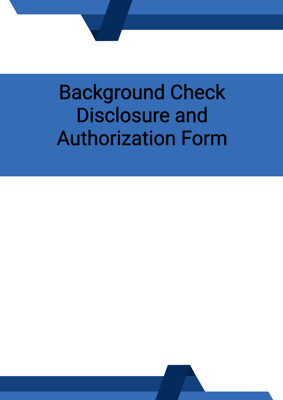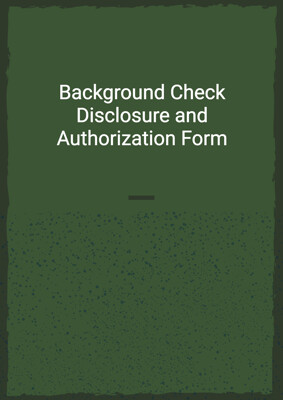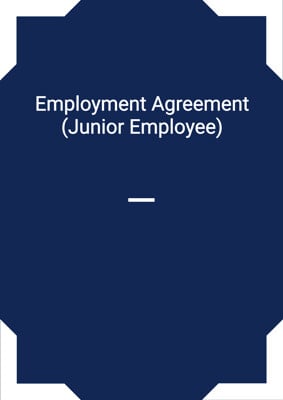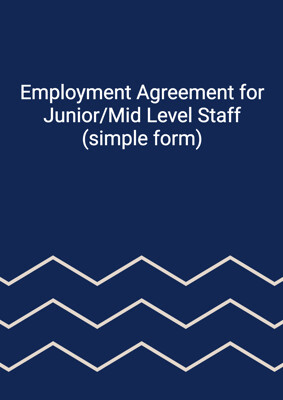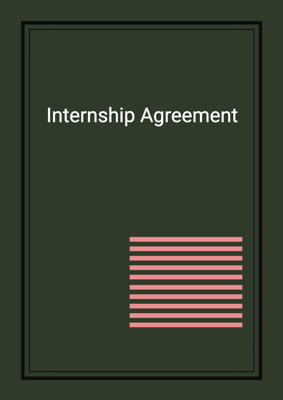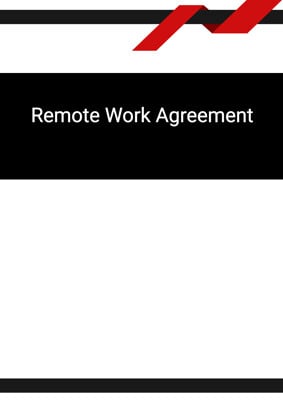How to Tailor the Document for Your Need?
01
Create Document
Fill in the details of the parties. You can click the "Fill with Member’s Information" button to complete it with information saved to your account.
02
Fill Information
Please fill in any additional information by following the step-by-step guide on the left hand side of the preview document and click the "Next" button.
03
Get Document
When you are done, click the "Get Document" button and you can download the document in Word or PDF format.
04
Review Document
Please get all parties to review the document carefully and make any final modifications to ensure that the details are correct before signing the document.
Document Preview
Document Description
This nanny employment agreement is a legally binding document that outlines the terms and conditions of the employment relationship between the employer and the nanny. The agreement highlights the importance of providing professional child care services and emphasizes the employer's desire to employ the nanny for the specific purpose of caring for their children. The document is divided into several sections, each addressing different aspects of the employment arrangement.
Section 1: Work Description
This section provides a detailed description of the nanny's responsibilities, including feeding the children, preparing meals, grocery shopping, transportation, light housekeeping, assisting with homework, planning activities, pet care, and keeping a daily journal. The nanny is also expected to adapt to unexpected changes in the schedule and abide by the employer's house rules.
Section 2: Probation Period
This section states that there is a probation period of 30 days from the commencement date, during which the employer has the right to terminate the nanny's employment without notice or cause.
Section 3: Commencement Date and Work Schedule
This section specifies the start date of the employment and the expected number of hours the nanny is expected to work per week. It also outlines the normal working hours, including a meal interval, and mentions that the nanny may be required to work overtime with prior notice from the employer.
Section 4: Compensation
This section states the hourly rate of pay for the nanny and the additional overtime fee for any hours worked beyond the normal working hours. It also mentions that the compensation will be paid on a monthly basis and that the employer will withhold the appropriate taxes.
Section 5: Leave Entitlements
This section outlines the nanny's entitlement to paid statutory holidays and paid time off. It specifies the number of paid leave days per year and provides guidelines for requesting time off for vacation, illness, and personal matters. It also mentions that any unused paid time off will roll over to the next year, up to a maximum of forty days.
Section 6: Other Benefits
This section lists the additional benefits provided to the nanny, including petty cash for out-of-pocket expenses, a vehicle allowance or a provided vehicle for transportation, a mobile phone for communication, health insurance coverage, and meals/snacks during working hours.
Section 7: Emergency Contact
This section provides contact information for emergencies and outlines the nanny's responsibility to transport the children to a clinic/hospital if the employer or emergency contact cannot be reached.
Section 8: Warranties
This section states that the nanny represents and warrants their authority to enter into the agreement and their truthfulness in providing information about qualifications and prior conduct.
Section 9: Nanny's Additional Obligations
This section lists several obligations that the nanny must adhere to, including obtaining authorization for medication, not having guests without consent, not sharing information on social media, not using alcohol or illegal drugs while on duty, and not smoking in the employer's home or presence.
Section 10: Term and Termination
This section states that the employment is at-will and can be terminated by either party at any time, with or without cause, with a 30-day notice. It also lists several grounds for immediate termination, such as breach of the agreement, job incompetence, failure to comply with instructions, compromising child safety, breach of confidentiality, acts of dishonesty, and criminal conviction.
Section 11: Confidentiality
This section emphasizes the confidentiality of information obtained during the agreement and prohibits its disclosure to third parties. It allows for disclosure to medical professionals and states that a failure to abide by this clause may result in immediate termination.
Section 12: Amendment
This section states that any variation of the agreement must be in writing and signed by both parties.
Section 13: Entire Agreement
This section confirms that the agreement represents the entire agreement between the employer and the nanny.
Section 14: Severability
This section states that if any provision of the agreement is deemed illegal, void, or unenforceable, it will be deemed not included, but the remaining provisions will remain valid. The parties are encouraged to negotiate a substitute provision if necessary.
Section 15: Disputes
This section states that any disputes related to the agreement will be settled through voluntary mediation, and if unsuccessful, through the jurisdiction country courts.
Section 16: Counterparts
This section allows for the agreement to be executed in multiple counterparts, each of which is considered an original document.
How to use this document?
1. Provide information: Enter the employer's and nanny's information in the agreement, including their mailing addresses. This ensures that both parties are clearly identified.
2. Specify work description: Clearly outline the nanny's responsibilities, including child care tasks, housekeeping duties, and other requested activities. This helps set expectations and ensures both parties are aware of the scope of work.
3. Agree on probation period: Establish a probation period of 30 days from the commencement date, during which either party can terminate the employment without notice or cause. This allows for an evaluation period.
4. Determine work schedule: Discuss and agree on the expected number of hours per week, normal working hours, and meal intervals. Adapt to emergency situations if they occur.
5. Set compensation: Determine the hourly rate of pay for the nanny and the additional overtime fee. Ensure that the compensation is paid on a monthly basis and that taxes are withheld as required by law.
6. Establish leave entitlements: Define the nanny's entitlement to paid statutory holidays and paid time off. Specify the number of paid leave days per year and provide guidelines for requesting time off.
7. Discuss other benefits: Determine if the nanny will receive petty cash for expenses, a vehicle allowance or a provided vehicle, a mobile phone, health insurance coverage, and meals/snacks during working hours.
8. Provide emergency contact: Share contact information for emergencies and clarify the nanny's responsibility to transport the children to a clinic/hospital if necessary.
9. Ensure warranties: Confirm that the nanny has the authority to enter into the agreement and has provided truthful information about qualifications and prior conduct.
10. Communicate additional obligations: Discuss and agree on additional obligations, such as obtaining authorization for medication, not having guests without consent, and maintaining confidentiality.
11. Establish termination terms: Clarify that the employment is at-will and can be terminated by either party with a 30-day notice, except for immediate termination for specified reasons.
12. Emphasize confidentiality: Highlight the importance of keeping all information obtained during the agreement confidential, except when disclosed to medical professionals.
13. Discuss dispute resolution: Encourage voluntary mediation as the first step in resolving any disputes related to the agreement.
14. Sign and retain copies: Ensure that both parties sign the agreement and retain copies for their records.
Not the right document?
Don’t worry, we have thousands of documents for you to choose from:

